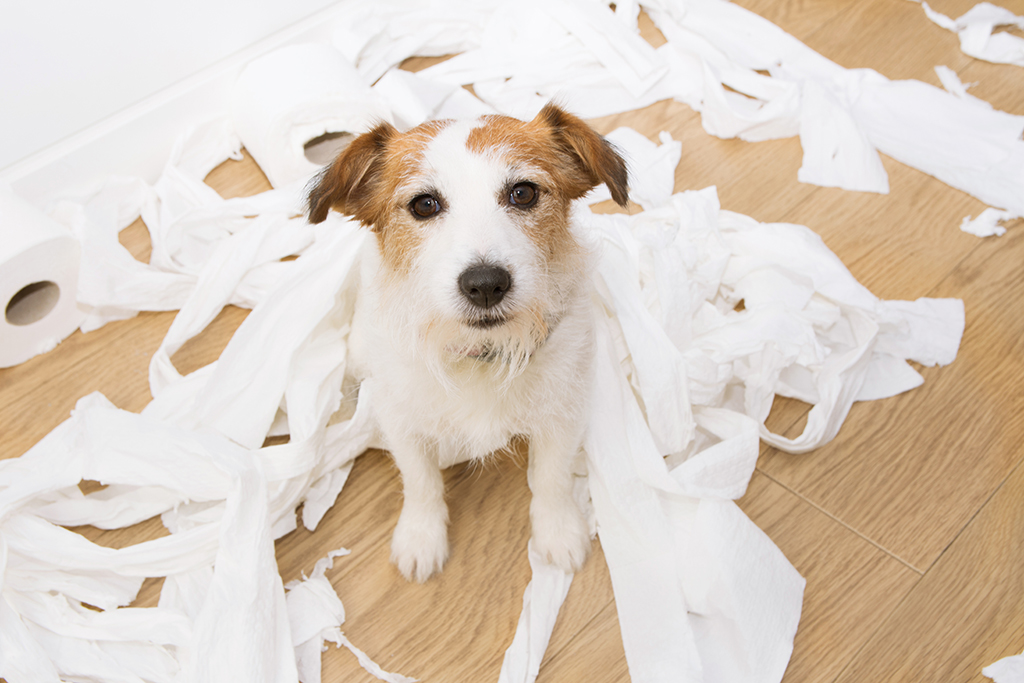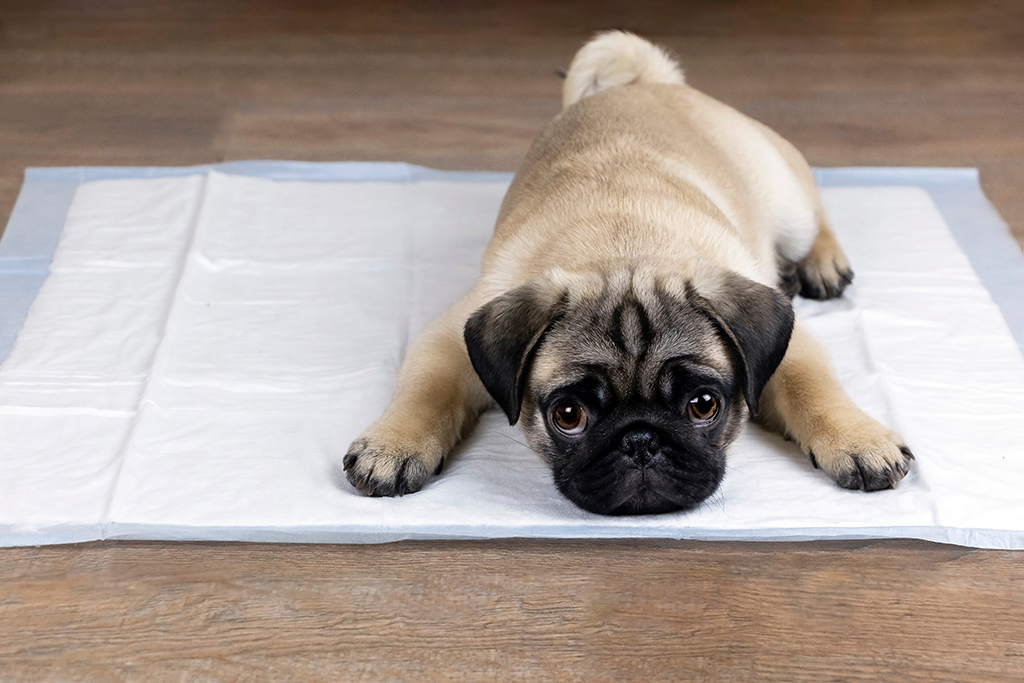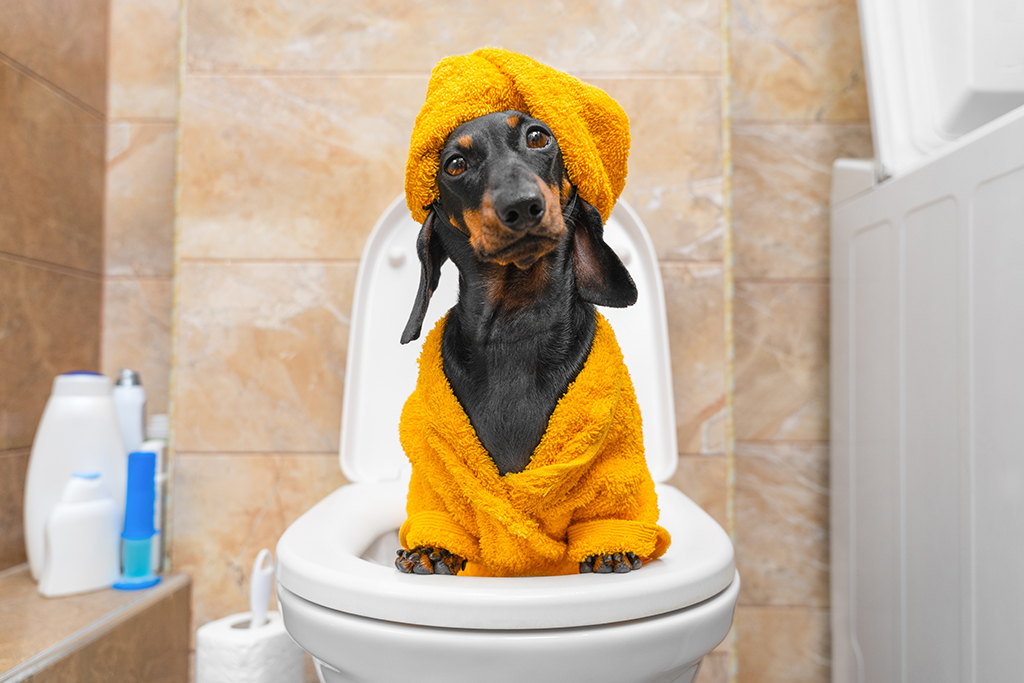
Getting a puppy is an exciting time, but there is so much for you both to learn and it can feel overwhelming, from teaching your puppy to sit, to socialising your puppy, there are a lot of new things to get to grips with from the start.
One of the most important life skills that they’ll have to master is toilet training. Dogs don’t have full bladder capacity until they are around 12 months old – the muscles that control their bowels and bladders are still developing – so it will take a few months, and a lot of patience, for them to be fully toilet trained and in a routine.
Toilet training your puppy can be a really good bonding experience for both of you, so we’ve put together some tips on how to toilet-train a puppy to make it a bit more straightforward for everyone involved.
1. Learn To Notice The Signs
A really good start to training your dog to go to the toilet is learning to recognise the signs that they need to go. Keep an eye on them so that eventually you can spot the signs that they’re about to go; this could be sniffing the ground, squatting, circling, restlessness, pacing etc.
If you notice your dog doing any of these, gently interrupt them and redirect them outside. Then wait patiently; if they do go then reward/praise them – praise works best for this, if you give them a treat every time they do a poo then they’ll learn to expect one every time they go! If they don’t manage to go once you’ve got them outside, keep an eye on them as they’ll probably need to go outside again soon.-
2. Establish A Toilet Training Schedule
The key to establishing a good toilet training routine is consistency. A good routine will help your dog to feel more secure and less likely to go to the toilet in the wrong place. It’s a good idea to give your dog plenty of opportunities to go outside:
- When they wake up – first thing in the morning and after naps.
- After eating and drinking.
- After any activity.
- Before bedtime, preferably as late as possible.
A puppy may need more toilet breaks than an older dog, so you could aim to take them out every hour or so, making sure they get to go in the right place.
The aim is for your dog to associate being in the garden with going to the toilet. If they don’t go straight away then give them some space and maybe ignore them; if you’re not entertaining them, they’re more likely to go.
When they do go to the toilet outside, remember to praise and fuss them.

3. Deal With Accidents Carefully
Accidents are to be expected in the first few months of toilet training; their bladders are still tiny, and puppies can very easily get distracted. The main thing to remember is not to punish your puppy, this will only frighten them and make the situation worse.
It can all be very confusing for a small puppy, they don’t know that’s your favourite rug! Just clear up any mess quietly and calmly, and maybe remove any precious soft furnishings until you’ve got into some kind of routine.
4. Teach Them To Go When You Ask Them
If your dog responds well to verbal cues you could introduce a phrase – such as ‘wee wees’ or ‘poo poos’ that they associate with going to the toilet; this could help the process.
Teaching your dog to wee or poo when you prompt them can be useful. When you notice them about to go you can quietly say the word or phrase that you want them to associate with what they’re doing. Remember to praise them afterwards. Like everything in this process, it will take practice and patience.
5. What About When You’re Out And About?
Often puppies are spot on with their toilet training when at home but then refuse to go when out on a walk – they may associate doing a wee to being at home. You could try taking your dog out early, before their morning wee when they’re more likely to be desperate.

Common Toilet Training Problems
The following things could result in toilet training not going as well as it could:
- Over-feeding.
- Punishing your puppy for having an accident indoors.
- Using ammonia-based cleaning products when they have an accident, as they can smell like urine.
- Expecting your puppy to let you know when they need to go.
- Leaving them on their own for too long.
- Letting your puppy come and go outside as they please.
- Leaving them alone in the garden – there won’t be anyone around to praise them.
- High expectations – it’s not fair to expect your puppy to go through the night straight away.
Toilet training can take several months but is necessary for being a dog owner. While it can be hard work, and tiring, particularly in the first few weeks, with a bit of patience (and plenty of antibacterial spray!) you’ll soon get into a good routine.
There are lots of different ideas around toilet training but if you have any concerns you can get in touch with your vet.
For more advice about owning a puppy, take a look at our blog about getting your pet neutered, and if you’re undecided about getting pet insurance find out how you can tailor your policy to suit your dog and your wallet. Give us a call today for a free, no-obligation quote.
All content provided on this blog is for informational purposes only. We make no representations as to the accuracy or completeness of any information on this site or found by following any link on this site. We will not be liable for any errors or omissions in this information nor for the availability of this information. We will not be liable for any loss, injury, or damage arising from the display or use of this information. This policy is subject to change at any time.
We offer a variety of cover levels, so please check the policy cover suits your needs before purchasing. For your protection, please ensure you read the Insurance Product Information Document (IPID) and policy wording, for information on policy exclusions and limitations.


